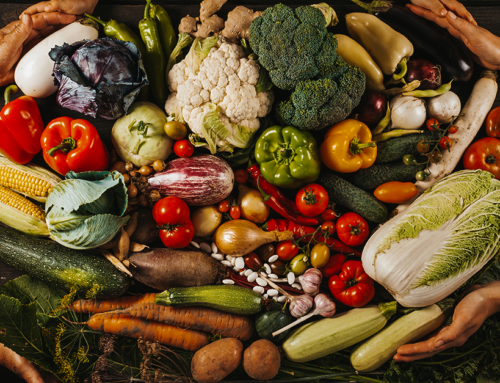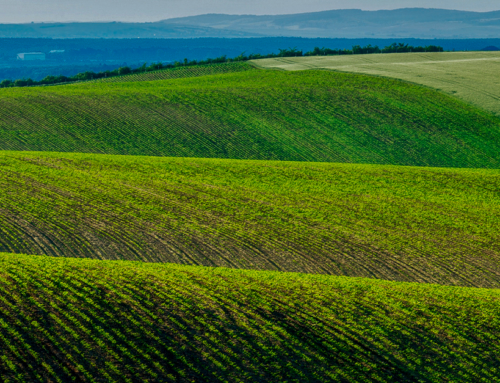Organic fertilizers have many benefits compared to their synthetic counterparts. Some of these include the ability for local farm preparation, better availability, and the presence of complex biological structures. We can’t say the same when it comes to Chloride Containing Fertilizers.
Chloride is an essential micronutrient for all crops in small quantities. However, in excess, it is often associated with salinity damage, toxicity, and severely damaging soil biodiversity. Common consequences of excess chloride include necrosis of leaf margins and tips, leaf burn, and defoliation. If left untreated, poor soil will adversely affect the food we eat, water we drink, and air we breathe, as well as the health of all organisms on this planet.
As the world’s population continues to exponentially grow, cost-effective solutions to sustainable agricultural practices are necessary. For years, farmers have been told that in order to produce the best crop yield, they must turn to chemical fertilizers high in concentrations of nitrogen, potassium and phosphorus.
However, many fertilizers often use three times the amount of minerals actually needed! This creates a huge problem – excess minerals are washed away by rain and irrigation, finding their way into water sources used by both animals and humans and ultimately affecting organism health.
So you’ve heard us talk about the dangers associated with chloride containing fertilizers and the detrimental effects it can have on soil biodiversity. Well, in this article we’re going to present the alternatives to these synthetic fertilizers, and their benefits to our planet. Keep on reading!
What do Organic Fertilizers have to Offer?
As we mentioned before, organic fertilizers have many benefits. This type of fertilizers supports microbes, fungi, and other essential fauna, allowing the slow release and consistent uptake of nutrients as organic material improves soil structure and enhances water retention. Lastly, it improves buffering capacity against fluctuations in pH levels.
Luckily, there are many natural, eco-friendly alternatives to current harmful, synthetic fertilizers being used. Here are five examples:
- Kelp: Kelp-based fertilizers contain mostly potassium (K) and some nitrogen (N). Kelp stimulates soil development, in turn enabling plants to thrive and increasing their overall yield. It also allows crops to develop a higher threshold for temperature extremes such as prolonged drought or cold, icy conditions. The cheapest way to get kelp is gathering and composting it yourself, but you can also find it available in many garden centers.
- Cow manure: Probably one of the most common forms of fertilizer, cow manure is rich in nutrients, feeding soil and plants alike. After proper composting, seeing as applying it directly to plants can burn them, cow manure can be given to crops as a natural replacement for fertilizer. Ideally, manure produced by organically farmed cows is preferred or else you may risk chemical antibiotic residues seeping into your plants.
- Alfalfa meal: This plant-based fertilizer has many pros. The main benefit of alfalfa is that it improves the soil quality and enables the production of more nutrients for plants to feed off of. In turn, this increases plant growth over time. Alfalfa can also be easily found at your local garden center.
- Limestone: Limestone is used to balance pH levels in the soil with high concentrations of acidity. Due to the calcium in limestone, it is able to balance this acidity and assist in overall plant growth and health. However, it is important to note that you should test the levels of acidity in your soil before adding limestone to avoid overapplication.
- Chicken manure: Chicken manure contains a good amount of nitrogen, potassium, and phosphorus, as well as calcium and magnesium. Chicken manure can be bought in pellet form or from a neighborhood farmer. Similar to cow manure, it must be properly composted before use because of the high nitrogen content which when raw, can burn through plants.
The above is a non-exhaustive list of natural fertilizers that farmers and gardeners can use to become more sustainable. Fortunately, every day we see better, more eco-friendly fertilizer options in the market that can help farmers increase crop yield and improve soil health. This allows farmers to choose their inputs based on their crop and soil need, local availability, product sustainability, and prices.
What can Switching to Natural Fertilizers do for our Planet?
Agriculture is currently one of the most significant contributors to global warming. However, more and more studies are emerging which point towards sustainable farming having the ability to combat climate change by trapping temperature raising carbon in the soil.
Soil organisms sequester carbon by putting it back into the soil instead of the atmosphere, promoting healthier soil and air. Agriculture is also a large factor in water pollution, impacting drinking water quality, impairing rivers, and harming biodiversity. Conventional farming practices are notorious for using toxic chemicals such as pesticides which devastate the fauna and their ability to sequester carbon.
Most of these synthetic fertilizers are detrimental to soil health and contribute to greenhouse gas emissions, thus aggravating climate change. Moving away from these inorganic forms of fertilizer will produce cleaner, less polluted water globally. Additionally, using organic fertilizers greatly reduces the chemical load in our food and water.
Below there are some other articles that you might be interested in:
- Soil biodiversity and human health
- Soil Salinization Is a Growing Threat to Our Natural Resources
- Soil Carbon Sequestration and its Relationship with Climate Change






Leave A Comment